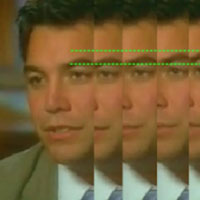Quick Bytes – Dec 22nd: Traffic-monitoring comes into the connected age

A look at the most interesting startup and business-related news stories of the week.
Future of grocery shopping
 Quick Byte
Quick Byte
Technology is once again making a new ripple effect in the FMCG industry. In the US, of course, we have Amazon forging the path with their attempt at a cashier-less store a year ago. Now Walmart’s startup subsidiary, Code 8, are experimenting with technologies like computer vision to do the same. However, it’s Amazon’s Chinese rival, JD.com, that’s beaten everyone to the punch announcing hundreds of unmanned convenience stores, whose RFID and facial recognition technology has already been tested on 10,000 employees. We’re really interested in the potential sitting behind the image-recognition technology – understanding a customer’s preferences and creating more efficiently stocked stores.
The Full Story
A little more than a year ago, Amazon announced a new grocery store concept that promised customers a human-less shopping experience. Customers would simply walk in, grab the items they need, and leave without waiting in a line or going through a checkout—letting sensors, computer vision, and machine learning quietly do all the work to capture, calculate, and charge you for your purchases. Read the Full Article Here
AI systems in courtrooms
 Quick Byte
Quick Byte
A study has been released describing a machine-based learning system that can detect ‘deception’ in courtrooms at 90% accuracy. While, at this stage, their test consisted of 104 actors, which makes us question their bold 90% claim a little, it undoubtedly has the potential to be a huge step forward. And, of course, a massive step up from polygraph ‘lie detectors’, which, in the US, don’t have to be admitted in a court of law.
The Full Story
Courtrooms are inexact places. Juries and the processes they use to reach verdicts are parameterized, but a trial is nonetheless all about convincing those juries of something that is inexact and subjective at its core. In the US, this is “reasonable doubt.” To find guilt, a judge and-or jury must determine beyond a reasonable doubt that a defendant is guilty of an offense. In one courtroom, that reasonable doubt maybe be countered by overwhelming physical evidence, while, in another, it may be the testimony of an incentivized witness. Read the Full Article Here
Traffic-monitoring comes into the connected age
 Quick Byte
Quick Byte
More and more cities are turning towards smart technology systems that manage traffic. It’s going to be important for cities to start investing in this now to be ready for the huge wave of data that will come with connected and driverless cars hitting the road. Las Vegas is already well on the way with Waycare. They believe in a system that is condition-dependent – for instance, fixed speed limits don’t work when it’s just been raining or when there’s an incident up ahead. By networking data, Waycare is able to deliver “traffic calming” information to drivers to prepare them so they no longer go into situations blind.
The Full Story
Speed limits, crashes and bumper-to-bumper traffic may become a thing of the past (or at least less of an annoyance) thanks to Israeli technology.
A startup called Waycare is helping to put the smarts into smart cities by monitoring everything to do with traffic flow – traffic lights, road sensors, security cameras and data sent from connected cars. Waycare consolidates and makes sense of all that data for a city’s traffic management center. Read the Full Article Here
COWORKING ACCELERATOR
Interested in taking your startup to the next level?
